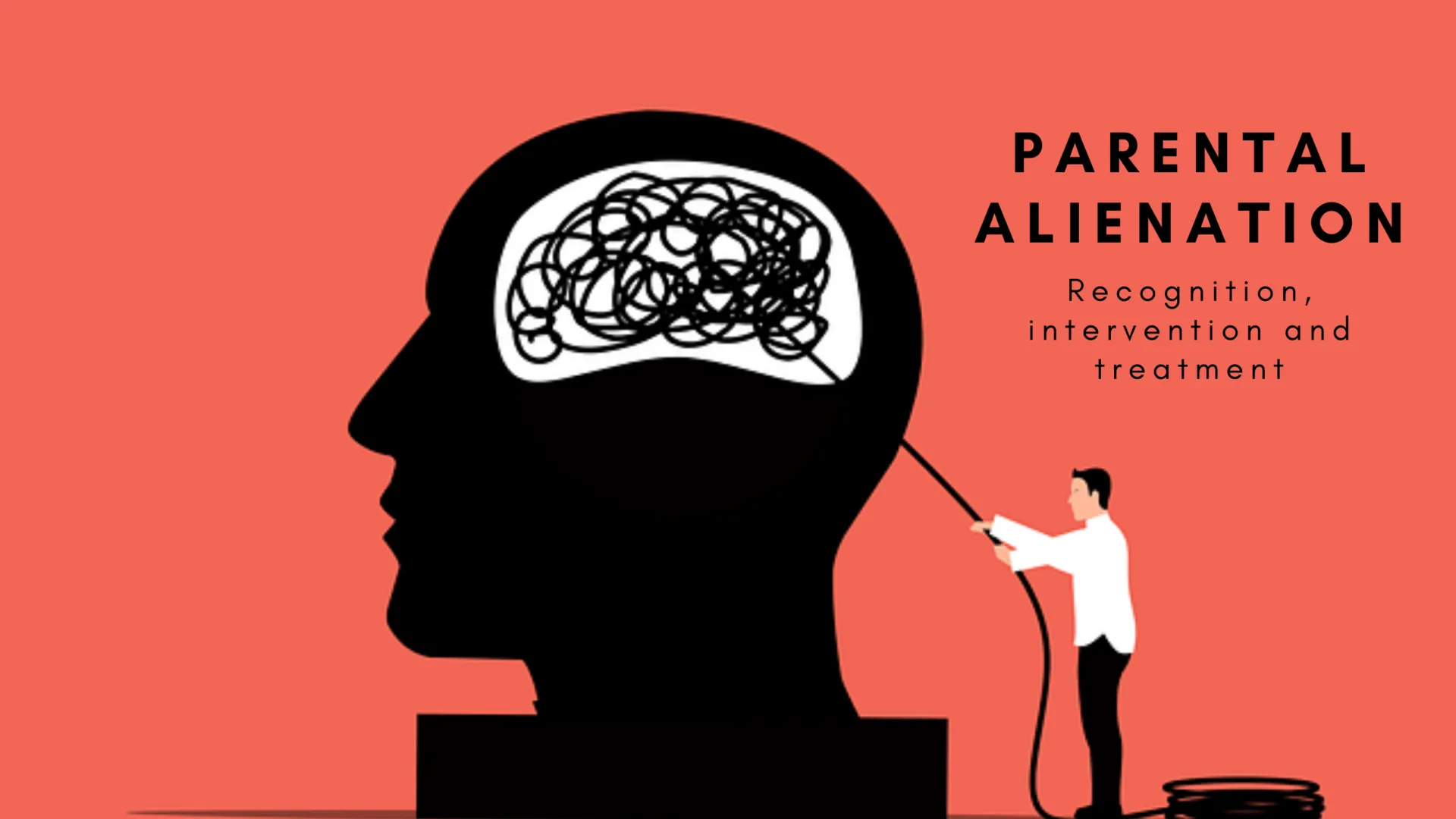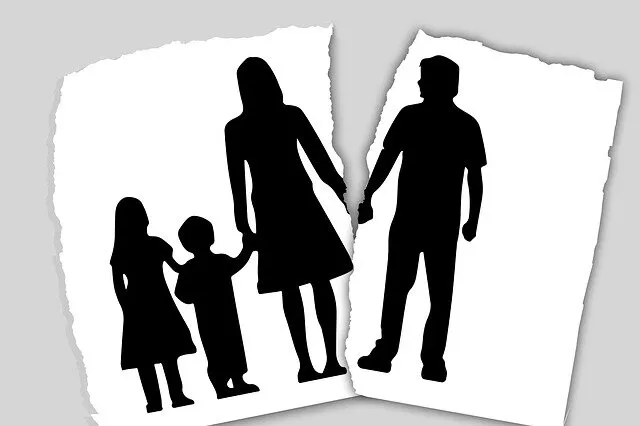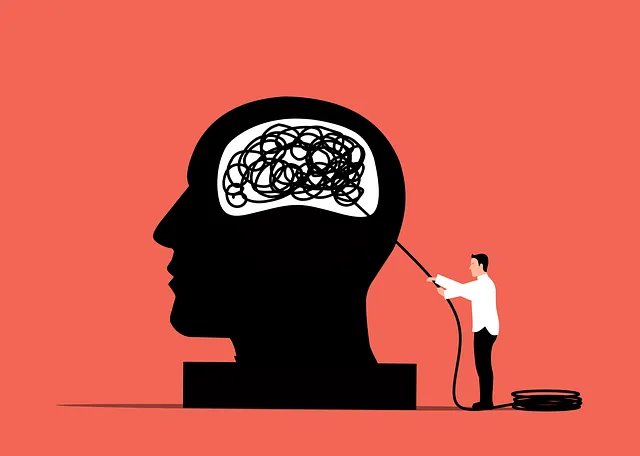What is alienation?
There is much controversy around the term parental alienation with some groups claiming it to be a “tool used by men to further their abuse of a protective mother”. Whilst in some cases, an abusive/personality disordered ex partner may claim alienation when it is in fact estrangement, there are many key differences in the presentation of all family members which will help to indicate whether the child’s rejection of the parent is of their own volition or has been psychologically projected onto the child by a personality disordered parent.
Estrangement
Estrangement occurs when the child has a very real reason for choosing not to want contact with the other parent. They are able to express their views clearly, using age appropriate language and there is evidence that the behaviour they describe actually occurred. They also hold good memories, experience sadness over the relationship and demonstrate an openness to things changing in the future. Other signs include clear identity formation which is separate from the other (not estranged) parent, lack of black and white thinking (one parent is all good and the other all bad), presence of empathy and independent thinking.
Signs in the not estranged parent include willingness to support attempts for recovery of the relationship, ability to see their experience of their ex as separate from their child’s experience, understanding of and appreciation for the value of the other parent to the child, recognition of their own trauma and attempts to access support, willingness to collaborate rather than control.
Signs in the estranged parent include the ability to accept responsibility for the behaviour which lead to the relationship breakdown, ability to see the situation from their child’s perspective, attempts made to apologise without becoming defensive and understanding that it may take time for the relationship to be repaired.
Protection
The term “protective mother” has been used a lot to deflect the alienating behaviours of abusive mothers. However, in some instances, the parent’s behaviour (mother or father) could be protective rather than alienating and so it is important the level of risk they are reporting is considered and investigated thoroughly.
A protective parent will look for solutions for safety for themselves and the child. They will prioritise the safety (including emotional) of the child and this includes not sharing details of their experience with the parent where abuse is alleged and where possible protecting them from the court process, honouring their child’s love and relationship for the other parent both symbolically and emotionally, creating a safe home environment with boundaries, security and emotional warmth, utilising support and taking self responsibility for their own recovery.
The child will be able to share their own experience in age appropriate language but will show loyalty to the other parent and guilt for saying bad things about their parent. They will often express a desire to see the other parent and worry about them. They may turn against the protective parent, blaming them for not seeing the other parent.
Alienation
There are three levels of alienation which are not linear but can progress from one to the next.
Mild Alienation
In mild cases of PA, the alienator parent seeks to strengthen his or her position through subtle programming. In some cases, the parent realizes that alienating the child from the other parent is not in the child’s best interest and therefore engages in no programming at all. Nonetheless, anger can be present, perhaps even some desire for vengeance. Unlike parents in the severe category, the parent in this category suffers from no paranoia.
Kids in the mild category are often motivated to strengthen one parent’s position in an attempt to maintain a psychological bond with that parent. On the other hand, children in this category are often receptive to visitation and are the most likely to express affection for the other parent, even in the presence of the mild alienator.
Moderate Alienation
Alienators in the moderate category aren’t as fanatical as those in the severe category, but rage is nonetheless an important factor. Consequently, the moderate alienator can wage an intense campaign of deprecation in an attempt to alienate the children from the other spouse. The moderate alienator will often be very creative in obstructing visitation but will usually comply when faced with a fine or possible change in custody. A parent who is a moderate alienator was most likely a good parent prior to divorce, and this differentiates the moderate from the severe alienator. Because of his or her good parenting skills, the moderate alienator often retains primary custody.
Children in a moderate alienation situation aren’t as severe in their criticism of the targeted parent as severely alienated children, and they tend to stop their criticism when alone with the targeted parent. Younger children in the moderate category usually need the lead of an older sibling to maintain their half of an alienation campaign. Therefore, if a younger child develops Parental Alienation, it is usually the result of imitating an older brother or sister.
Severe Alienation
Severe alienators are fanatics who are obsessed with hate for their former spouses. Severe alienators are often paranoid, and their paranoia involves projection. The severe alienator sees something in her- or himself and sees the same objectionable characteristic in the targeted parent. This projection allows the severe alienator to assume the role of innocent victim. False accusations of sexual abuse often arise in severe alienation scenarios, and the severe alienator will exaggerate and twist almost anything a child says in order to support such allegations. Severe alienators exhibit the hallmark of paranoid thinking in that they don’t respond to reason, logic, or the obvious.
Severely alienated children are similarly fanatical and often share the same paranoid fantasies as the alienator parent. The mere thought of visiting the targeted parent is enough to terrify them. Severely alienated children are often so fearful and hostile that they will try to run away if placed in the targeted parent’s home. Despite this, however, some severely alienated children may settle down somewhat if required to stay with the targeted parent over an extended period.
From: https://psychlaw.net/are-there-different-degrees-of-parental-alienation/
As you can see there is some cross-over in these terms and I share them for information rather than diagnostic purposes. The intervention stage is where diagnosis’ are made.
Intervention
As stated, the levels of alienation are not linear and can move from one to the next. Equally, mistaking protection or estrangement for alienation can be harmful and even dangerous for the child. Therefore early intervention and investigation is essential.
Whenever a child is refusing contact or a parent is blocking contact, it needs investigating. Allegations of domestic abuse are not sufficient reason for contact to be stopped indefinitely and for a child to reject a previously loving relationship. This video shows the problem with false allegations in alienation cases:
Professionals must remain open minded and curious. Cognitive heuristics and bias are common in cases involving alienation and so professionals need to regularly check their own practice, views and conclusions to ensure they have considered all possible eventualities before making judgements.
Once Scott Schedules and Fact Finding has been completed, where this is no definitive proof that the allegations are true, the court can begin to investigate the possibility of alienation. This would initially fall to Cafcass who use their Child Impact Assessment Framework to assess for alienating behaviours in the child, TP and AP.
For mild cases, the Separated Parents programme run by Cafcass may provide the parent with the perspective they need to cease any behaviours mentioned above and the relationship between the TP and the AC can be repaired easily. If domestic abuse is present, the Parenting Apart Programme is designed to assist parents in communicating in the best interests of the child.
For moderate cases, court-ordered therapy is warranted. Only one therapist should conduct the therapy, and he or she must report directly to the judge. For its part, the court must be willing to respond to obstructionism with all the means it has at its disposal, including fines, jail, or a threat of losing primary custody. The therapist must specialise in attachment, trauma, personality disorders and family systems theory in order for them to be able to recognise and treat the counter-intuitive nature of alienation.
In severe cases which are often protracted due to repeated breakdown’s in the attempt by court and the TP to restart contact and the AC’s behaviour becoming increasing aggressive towards the TP, it is important to involve experts. Whilst the introduction of a GAL can, if they are trained in alienation, be a positive step in identifying alienation. However often, the “GAL’s reliance on the alienated child’s position in custody or parenting time disputes not only continues the child’s exposure to parental alienation but in some cases, it solidifies it as well. The Guardian becomes the enabler of alienation creating a vicious cycle and nefarious incentives for the alienating parent to continue to manipulate and influence his or her child’s position” (Ashish Joshi, attorney).
It is therefore recommended that a psychological assessment of the family be carried out. Again the expert must specialise in attachment, trauma, personality disorders and family systems theory and be able to provide clarity over the short and long term impact on the child, the AP’s parenting capacity and behaviours which are harmful to the child and recommendations for treatment. All members of the family must be seen and if the AP or the AC refuses, steps should be made to enforce or recommend a change of residency.
Treatment
According to Blotcky, Bernett and Harman in their article “A Roadmap For The Treatment Of Parental Alienation” there are three main elements to the treatment of alienation:
- The AP must stop their behaviour
- The child’s alienation must be corrected and reversed
- The TP must overcome feelings of defeatism and be ready to be reunified with the AC
For mild alienation, strongly worded instruction or psychoeducation should be sufficient to stop the behaviour and allow the child to reconnect with the TP. In Get Court Ready we include the psychoeducation and trauma resources to help the TP to recovery and prepare for being an actively engaged and involved parent.
In moderate cases the treatment needs to be co-ordinated and led by someone with extensive knowledge of alienation. An individual therapist would work with the AP to support them in addressing their behaviour and healing their transgeneration trauma, abandonment anxiety and low feelings of self worth. A family therapist will work with the AC and TP to help them reestablish their relationship and correct any programming caused by the AP.
Treatment for severe cases involves restricted time with the AP, ideally supervised to ensure they do not continue their alienating behaviours. It is important to acknowledge that severe alienators will have a personality disorder which means they lack self-awareness, empathy and the ability to self-regulate. The child has become their “supply” and the pain felt by the alienating parent at having this regulatory object removed is real and therefore can be very convincing. They will not be capable of regulating their own emotions or behaviour without intensive support.
The AC and TP will also require intensive support from a specially trained therapist in order to reverse the alienation. Children who are severely alienated have developed aspects of the AP’s personality disorder and may present as having little to no empathy for the TP, a sense of entitlement, grandiosity presented as believing they are superior to the TP, emotional instability including intense and inappropriate anger, and antisocial behaviours such as defiance of court order and threats to runaway. Therapy will be necessary for both AC and TP separately, with a therapist who specialises in attachment injury and alienation, and together with a family systems therapist with expertise in attachment, trauma and alienation. Support should be ongoing until AC and TP’s relationship has been restored to a healthy dynamic (TP feels confident in their parenting and AC feels confident that TP can meet their needs. We run the Circle Of Security Parenting programme through The Nurturing Coach, which is an attachment based parenting programme and is ideal for parenting who have experienced alienation in any form once the relationship has been healed.
Conclusion
Early recognition, intervention and treatment is essential in achieving best outcomes for children. According to the 2020 research paper The Clinical and Legal Management of Parental Alienation in the United Kingdom by Wolverhampton University, professionals reported that outcomes from family court for children experiencing parental alienation were mainly rated as extremely poor (77.8%). The same study found seven (77.8%) respondents stated they had been involved in cases in which they had identified parental alienation was a factor, whilst two (22.2%) had not.
The main problems identified were:
- Lack of experts and programmes of support for families (34.5% unaware of anyone)
- Being able to differentiate between implacable hostility and alienation
- Lack of an assessment framework (only 27.6% have a framework)
- Lack of training (37.9% had none)
- 7.4% of professional did not think alienation was a serious safeguarding concern and 14.8% weren’t sure
These are all fixable issues. Hopefully this paper has given you a starting point in making improvements in the outcomes for children and families. If you require more support or training for your organisation, please email me at enquiries@getcourtready.co.uk or head to the Booking page.
Parental Alienation Toolkit
Our free toolkit is a library of resources including videos, articles and presentations by experts in the field.



